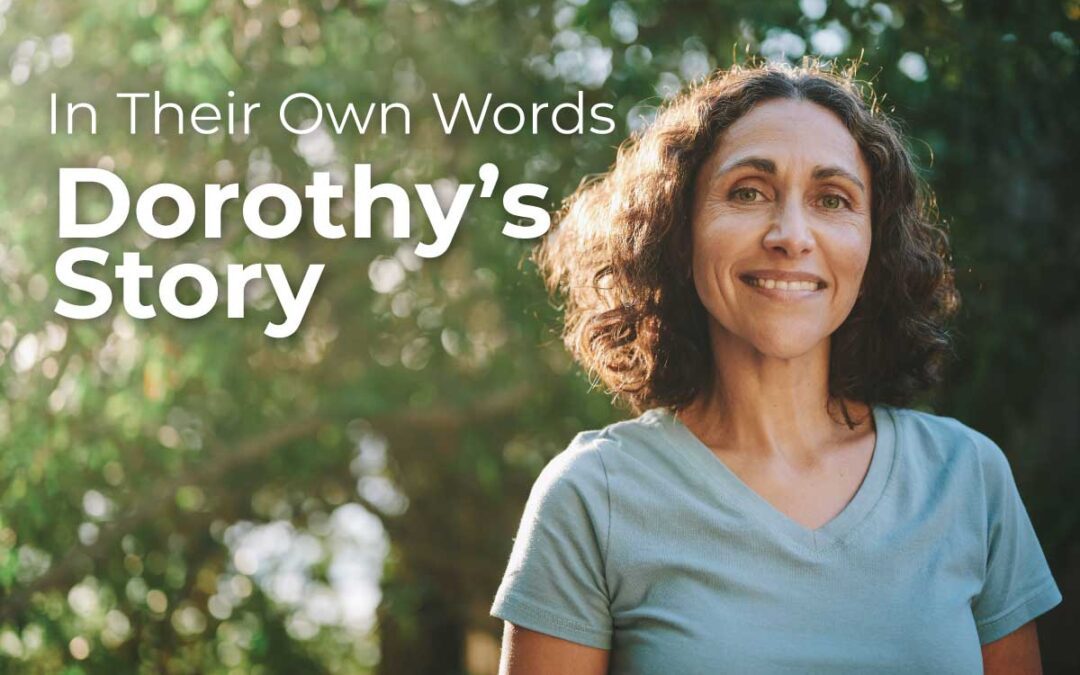Twenty-six years ago, I seemingly had it all. I had three young children, a great husband and a job. I was always the responsible person. I was active in the community, serving on civic boards and advisory councils, and a volunteer coordinator for my kids’ athletics. I was a natural leader, got things done and stepped up to help when needed, just as I was raised to do.
But this great life began to unravel after my father passed away from cancer not long after he was told he was five years cancer-free. I felt a great emptiness and wasn’t sure how to fill it.
My parents loved to go to the casino. They’d go and come home, occasionally asking if I wanted to go. My father would give me a roll of quarters and I’d spend it at a slot machine. I remember thinking it was a pretty dumb way to pass time.
After my dad died, I thought I’d try going to the casino. I played Black Jack, thinking it at least involved skill vs. playing slots. I never played high-stakes games but gradually began to stay later and later at the casino.
Over the course of about three years, I crossed what Gamblers Anonymous (GA) literature refers to as “the invisible line” where recreational gambling becomes compulsive gambling. I became unrecognizable to myself, my coworkers and my family. I disappeared from their lives as well as my own.
When I was in the casino, I wasn’t a “look at me” gambler. I gambled so that I could have enough money to keep gambling — so that I could continue the feeling of numbness. While gambling, I had no responsibilities to anyone. I felt very small, which meant nothing could hurt me.
Although I had a young family, I stayed out gambling later and later, getting home at 3 or 4 a.m. I came up with outrageous lies explaining why I was out so late.
As things worsened, I’d stay out the whole night, leaving my husband to figure out what to do with the kids come morning. Sometimes he’d take them to hourly childcare, other times they’d go to friends.
My husband encouraged me to get help, reminding me that we had a great life with good jobs, good friends and good kids. That sounded great to me, and I believed it when he said it, yet I couldn’t do it, couldn’t bring myself to quit for any extended amount of time. It baffled me that I could jeopardize this great life.
I went to see a special counselor for help. But that didn’t click for me, and I left the session feeling exposed but not cared for. I walked to my car, put my head on the steering wheel and just cried.
I proceeded to make promises that I’d stop going to the casino, but there I’d be back and staying at the casino all night. Sometimes I’d miss my job. My friends were concerned about me but I had them so compartmentalized that they thought it was about them.
Then came a pivotal afternoon in the fall after I’d come home from the casino that morning. My husband was with the kids raking leaves. Then he said to me in a calm, considered manner, “We have to talk about you moving out given the chaos you’re causing.”
That was when I realized that I could lose everything that was important to me. I subsequently called the Gamblers Anonymous hotline. It was the first time I’d spoken to anyone who seemed to understand what I was going through.
The person I spoke with recommended a particular meeting that she thought I’d be comfortable with. I practically crawled up the steps going to the meeting, where everyone seemed to be pretty happy and laughing. I was so freaked out to be there that I probably took in a fraction of what was said. But I remember how they made me feel, and how glad they were that I was there.
I cried and cried for the first several meetings. Things were discussed that really resonated with me, including the words “pitiful and incomprehensible demoralization” that a person with a gambling problem suffers. With each meeting, I walked away feeling more helped and more hopeful. I kept going to the meetings and before long, I felt comfortable enough to start doing service work, such as greeting other newcomers, helping to set up the chairs and, eventually, chairing the meeting.
I’ve since become very involved in GA, including the “business” side. The opportunities and accomplishments I’ve achieved with GA have greatly impacted my recovery, while at the same time helped other people in their recoveries.
For anyone thinking about getting help for compulsive gambling, I would suggest going to a meeting. You’ll find people who understand what you’re going through and the feelings you’re having. It can turn your life around.
I can only imagine how different my life would be had I not found help. But I do know that my life is great today, a continuation of the one I had before gambling sucked the life out of me all those years ago.

